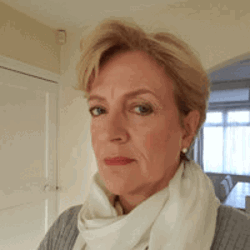Research projects to develop curved microwave absorbers for cloaking devices and to investigate how the chemicals in fingerprints age on different surfaces are among projects supported by the Academy’s latest UK Intelligence Community Postdoctoral Research Fellowships for unclassified basic research that can support the intelligence, security and defence communities.
The fellowships, which are offered by the Government Office for Science and administered by the Royal Academy of Engineering, provide a vital link between academia and the intelligence community. Each awardee receives funding for at least two years of their project and mentorship from a Fellow of the Academy as well as an advisor from the intelligence community.
The new postdoctoral researchers are listed below:
- Dr Katy Bruce, University of Kent
Polarised vibrational spectroscopy for the determination of fingermark age
Fingermark evidence remains one of the most convincing ways of linking an individual to a scene or an object, but we cannot currently determine when a fingermark was deposited. There are significant chemical differences across individuals that hamper efforts at modelling a fingermark’s age. Dr Bruce will instead investigate how the shape and orientation of these chemicals change with respect to the substrate, and over time. - Dr Sarah Clendinning, Queen's University Belfast
Passive ultra-wideband 3D-printed microwave absorbers
The unwanted reflection of incident electromagnetic waves on an object can be problematic as it can allow for the object to be detected at a distance or cause interference with the signal of interest. One way to mitigate against this is to integrate an absorber, which is a structure that can absorb the signal that hits it. Generally, absorbers are designed as flat surfaces, but curved absorbers can perform better for waves hitting the absorber at a steeper angle. This project aims to use a combination of 3D-printing techniques and inkjet printing to create an absorbing curved surface that provides cloaking of objects from multiple positions.
- Dr Colin Horne, University College London
Processing for radio frequency intelligence and mapping at the edge
Wherever we are, there are an abundance of radio frequency signals surrounding us at all times. Some of these signals are from external sources such as television or radio stations. Some we generate ourselves, such as from our mobile phones. Dr Horne’s research aims to provide an understanding of the radio signals we encounter, and what information we give away about ourselves by using radio frequency devices. - Dr Gabriel Moise, University of Oxford
Bio-inspired quantum chemical magneto-electric sensors
Nature exploits quantum effects in molecules to sense magnetic fields, as seen for example in migrating animals. Dr Moise’s project draws on biology’s strategies to create scalable, nature-inspired sensors for both magnetic and electric fields. The quantum nature of the proposed sensors will enable more secure and robust technologies with applications, for instance, in quantum information and satellite-free navigation. - Dr Alberto Rodríguez Cuevas, Aston University
Near-infrared dual-comb spectroscopy for stand-off detection of hazardous materials
Dr Rodríguez’s research develops a laser-based sensing technology to remotely detect hazardous materials, such as explosives, by identifying them directly or through the tiny chemical traces they release. This approach enables safe, fast, and non-invasive detection at a distance, strengthening border security, protecting public spaces, and enhancing national safety.
Learn more about the work of the 2025 UK Intelligence Community Postdoctoral Research Fellowships.
Notes for editors
- UK Intelligence Community (IC) Postdoctoral Research Fellowships are offered by the Government Office for Science to outstanding early career researchers. These Fellowships are designed to promote unclassified basic research in areas of interest to the intelligence, security and defence community. Each fellowship is capped at a maximum grant of £250,000 over a two-year period.
Submissions for the UK Intelligence Community Postdoctoral Research Fellowships 2026 will open in December.

